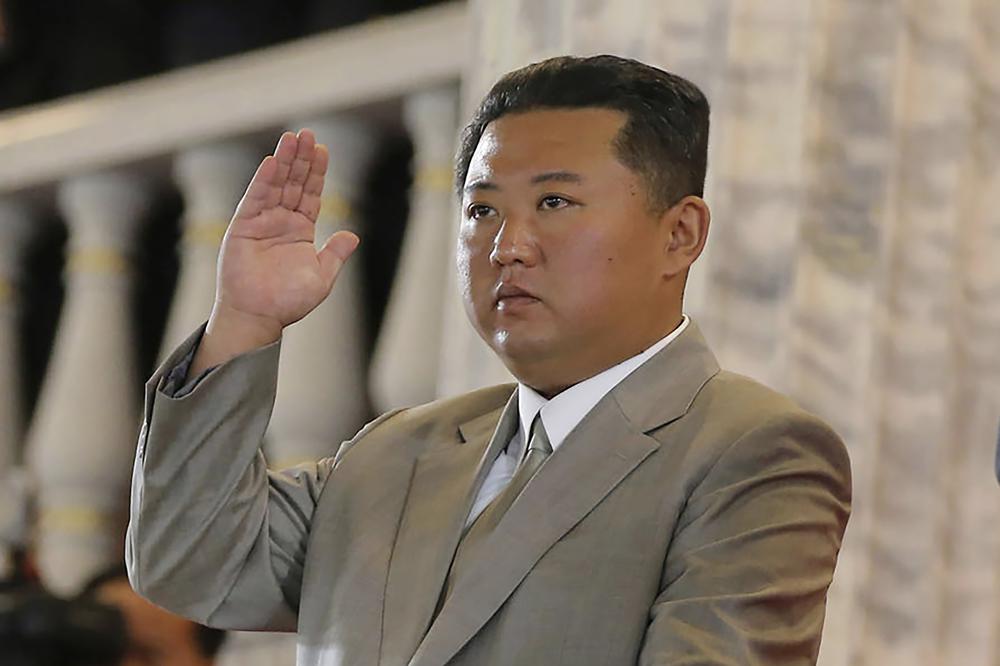North Korea fired two ballistic missiles into waters off its eastern coast Wednesday afternoon, two days after claiming to have tested a newly developed missile in a resumption of its weapons displays after a six-month lull.
South Korea’s Joint Chiefs of Staff said the missiles were launched from central North Korea on Wednesday afternoon. Japan’s coast guard says they landed outside Japan’s Exclusive Economic Zone in the waters between Japan and the Korean Peninsula. Seoul said South Korean and U.S. intelligence authorities are analyzing more details about the North Korean launches.
Advertisement
South Korean and U.S. intelligence authorities are analyzing more details about the North Korean launches, the joint chiefs’ statement said, adding that South Korea has boosted its anti-North Korea surveillance posture.
Japanese Prime Minister Yoshihide Suga said the missiles landed outside of the Japanese Exclusive Economic Zone in the waters between northwestern Japan and the Korean Peninsula.
“The firings threaten the peace and safety of Japan and the region and are absolutely outrageous,” Suga said. “The government of Japan is determined to further step up our vigilance and surveillance to be prepared for any contingencies,” he said.
Japan’s coast guard said no ships or aircraft reported damage due to the North Korean launches.
North Korea had said Monday it tested a newly developed cruise missile twice over the weekend. North Korea’s state media described the missile as a “strategic weapon of great significance,” implying they were developed with the intent to arm them with nuclear warheads. According to North Korean accounts, the missile flew about 1,500 kilometers (930 miles), a distance putting all of Japan and U.S. military installations there within reach.
Many experts say the weekend tests suggested North Korea is pushing to bolster its weapons arsenal amid a deadlock in nuclear diplomacy between Pyongyang and Washington.
Wednesday’s launches came as Chinese Foreign Minister Wang Yi was in Seoul for meetings with South Korean President Moon Jae-in and other senior officials to discuss the stalled nuclear diplomacy with the North.
It’s unusual for North Korea to make provocative launches when China, its last major ally and biggest aid provider, is engaged in a major diplomatic event.
Moon’s office said Moon told Wang that he appreciates China’s role in the international diplomatic push to resolve the North Korean nuclear standoff and asked for Beijing’s continuing support of such efforts. Wang called for further development in bilateral relations between Beijing and Seoul, but it wasn’t known if Wang specifically addressed the North Korea issue.
Moon’s office said the government plans to hold an unscheduled national security council meeting later Wednesday.
The nuclear diplomacy between the United States and North Korea has stalled since 2019, when the Americans rejected the North’s demand for major sanctions relief in exchange for dismantling an aging nuclear facility. Kim’s government has so far threatened to build high-tech weapons targeting the United States and rejected the Biden administration’s overtures for dialogue, demanding that Washington abandon its “hostile” policies first.
The North’s resumption of testing activity is likely an attempt at pressuring the Biden administration over the diplomatic freeze after Kim failed to leverage his arsenal for economic benefits during the presidency of Donald Trump.
North Korea ended a yearlong pause in ballistic tests in March by firing two short-range ballistic missiles into the sea, continuing a tradition of testing new U.S. administrations with weapons demonstrations aimed at measuring Washington’s response and wresting concessions.
North Korea still maintains a self-imposed moratorium on nuclear and long-range missile tests, a sign that it may not want to completely scuttle the nuclear negotiations with the United States.











